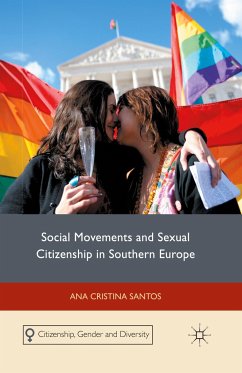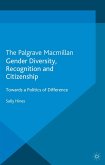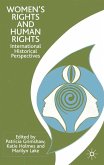This book explores the relationship between social movements, sexual citizenship and change in Southern Europe. Providing a comparative analysis about LGBT issues in Italy, Spain and Portugal, it discusses how activism can generate legal, political and cultural impact in post-dictatorial, Catholic and EU-focused countries.
'A much needed, richly theorised and empirically detailed account across the times and places of 'Southern Europe' and the varied sexual citizenships re-constituting publics, presences and participation in and beyond locales. Santos combines urgent political focus on new activisms, in their material, affective and geographical locatedness, intersected with astute academic intervention across inter-disciplines, international contexts and in-between 'academic' and 'activist' outlooks. Questions of recognition, ethics, empathy are weaved into contested notions of rights, mainstreaming and marginalisation. A new vocabulary of 'queer public sociology' and 'syncretic activism' is provided: there is much to learn from this engaging must read book.' -Yvette Taylor, Head of the Weeks Centre for Social and Policy Research, London South Bank University, UK, author of Lesbian and Gay Parenting: Securing Social and Educational Capital 'A powerful and striking account of the dynamic development of LGBT politics in Southern Europe. With impressive original sources, Santos offers a sensitive, highly attuned depiction of the conflict and change facing organised sexual minorities struggling for visibility, inclusion and social transformation across the institutions of state and nation.' - Davina Cooper, Professor of Law & Political Theory, University of Kent, UK.








